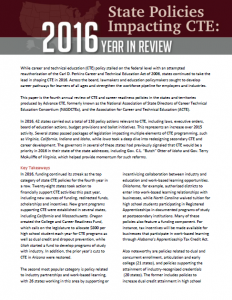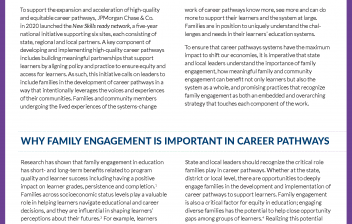Each year, Advance CTE and the Association for Career and Technical Education partner to release an annual Year in Review report, summarizing any and all CTE- and career readiness-related policies passed and approved in a given year. Between 2013 and 2016, all 50 states and DC have passed at least one policy, board action, executive order or budget appropriations impacting CTE, for a total of over 500 policies passed in that four-year span.
In additon to providing a summary of all state policies, these reports also identify trends around the issues the policies are addressing – from funding and governance to industry partnerships and work-based learning. For more examples of state policy in action, check out the Learning that Works Resource Center.
State Policies Impacting CTE: 2016 Year in Review (January 2017)
In 2016, 42 states carried out a total of 139 policy actions relevant to CTE — an increase over 2015 activity. Several states passed packages of legislation impacting multiple elements of CTE programming, such as Virginia, California, Indiana and Idaho, while Iowa took a deep dive into redesigning secondary CTE and career development. Funding was the leading category of policies passed in 2016, consistent with the past four years. Other popular policy categories for 2016 include industry partnerships and work-based learning; dual and concurrent enrollment, articulation and early college; and industry-recognized credentials.
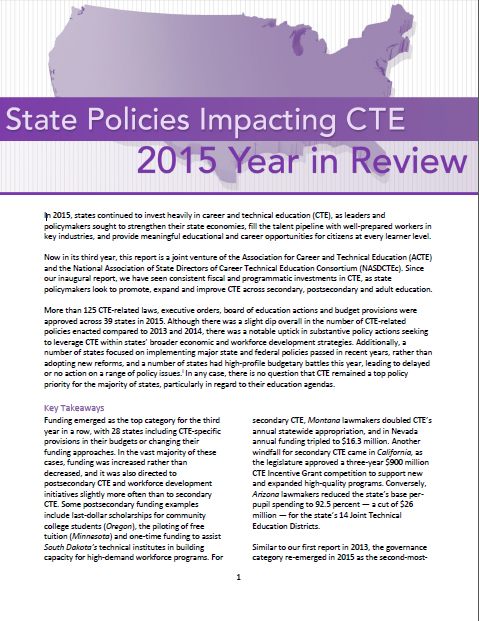 State Policies Impacting CTE: 2015 Year in Review (January 2016)
State Policies Impacting CTE: 2015 Year in Review (January 2016)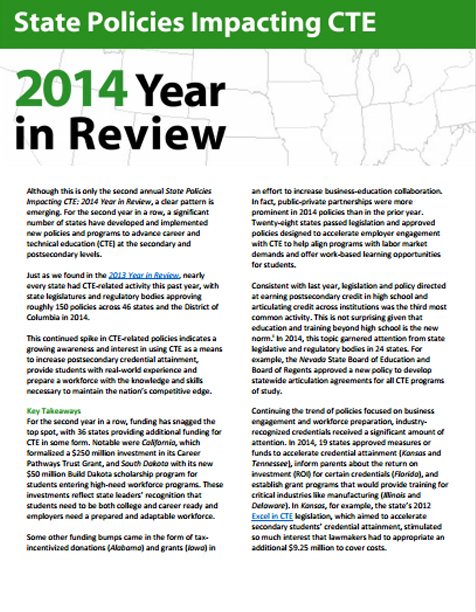 State Policies Impacting CTE: 2014 Year in Review (February 2015)
State Policies Impacting CTE: 2014 Year in Review (February 2015)
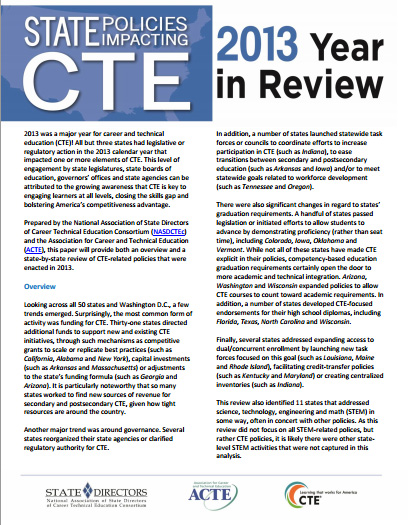 State Policies Impacting CTE: 2013 Year in Review (March 2014)
State Policies Impacting CTE: 2013 Year in Review (March 2014)

